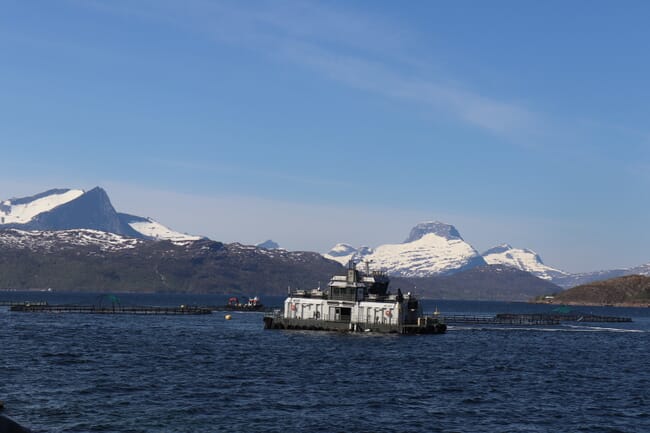The international project, called DisruptAqua, is worth €155,000 and is being supported by the European Union’s Northern Periphery and Arctic Programme (NPA).

As the demand for fish is increasing, the innovative use of existing and new technologies is required. This 18-month project will examine cutting-edge approaches to sustainably grow the region’s marine economy.
The project will be overseen by Highlands & Islands Enterprise (HIE), Nofima and the Icelandic Ocean Cluster. They will research how new technologies can be used by businesses in the Highlands and Islands and elsewhere in the northern periphery.
DisruptAqua will explore what specific ICT technologies are most suitable for Arctic seafood businesses. The benefits and costs will be examined as well as better understanding the route to practical application.
Scotland’s Cabinet Secretary for the Rural Economy, Fergus Ewing, said: “This project promotes the innovative use of existing and new technologies, helping the industry meet the increasing demand for fish and supporting high skilled jobs. It will not only help seafood businesses in remote regions harness the potential of new technologies, it will also strengthen our trade and investment links with our Nordic neighbours.”
Some research has already been carried out by partners on how new solutions could be used by businesses to add value to their products while ensuring sustainable production.
The DisruptAqua project has secured €85,000 from NPA, supported by the European Regional Development Fund (ERDF). HIE’s contribution is €17,500 and brings in a further €35,500 from ERDF, and the rest made up from the other partners.
Elaine Jamieson, head of food and drink at HIE, said: “Aquaculture is an important economic activity in parts of the Arctic region. Scotland has been cooperating with our Northern Periphery and Arctic neighbours for over 25 years on addressing common challenges and opportunities and delivering tangible outcomes to businesses and communities in the sparsely populated areas in the north.
“We are especially delighted to lead on this project in light of the recently launched Scottish Government’s Arctic Policy Framework, which recognises the need for even closer Scottish-Arctic cooperation.
“The model developed through this project will build on the existing knowledge across Scotland, Norway and Iceland. It will help ensure blockchain traceability of high value seafood products through the supply chain, from primary producer to consumer, ensuring value associated with provenance, environmental stewardship, quality and trust.”




